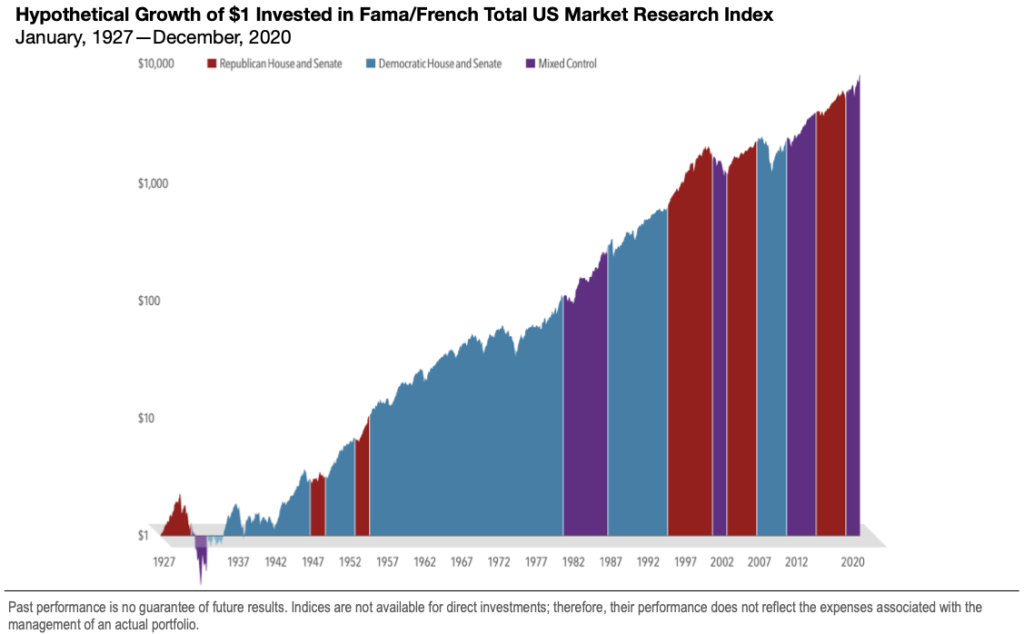
Red + Blue + Purple
It would follow logic that the government’s actions can have a direct result on the stock market. After all, if taxes are raised or lowered, that should affect company profits, right? However, the market is complex. Several global factors affect the market, not just actions from the government.
Nearly a century of US stock market returns suggests that making investment decisions based on control of the chambers of Congress is unlikely to lead to better investment outcomes.
From 1927 to 2020, stocks trended higher regardless of whether Democrats or Republicans controlled the House and the Senate, or whether control was mixed.
Markets Are Complex
Actions by Congress and the other branches of the federal government may impact returns, but other factors like geopolitical events, interest rate changes, and technological advances do too. Decades of research suggest that current market prices incorporate all of this information.
Shareholders invest in companies, not a political party, and companies focus on serving their customers and growing their businesses, regardless of what happens in Washington.
Stocks tend to reward disciplined investors no matter who has the upper hand in the House and Senate—a useful lesson about the benefits of a long-term investment approach.
